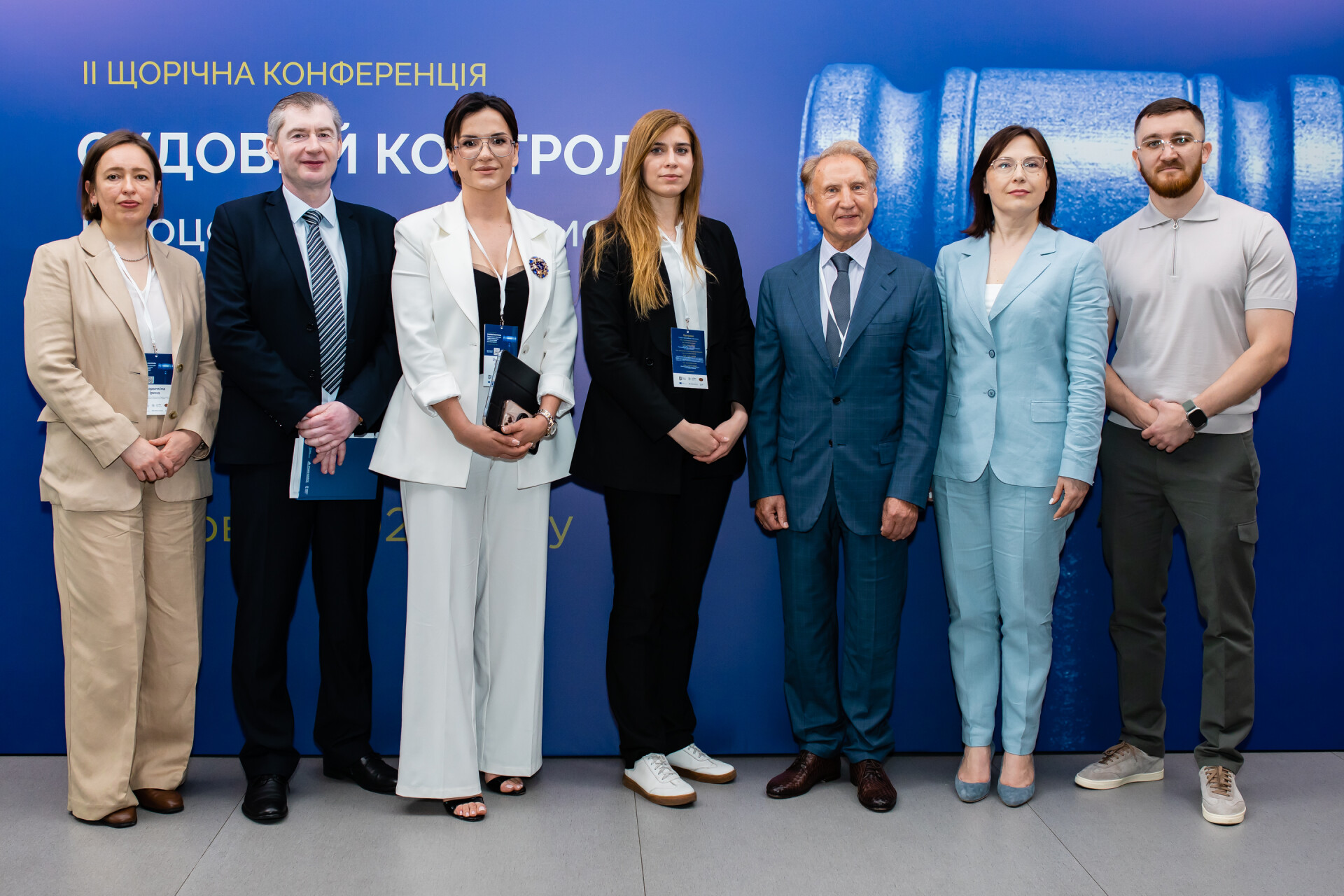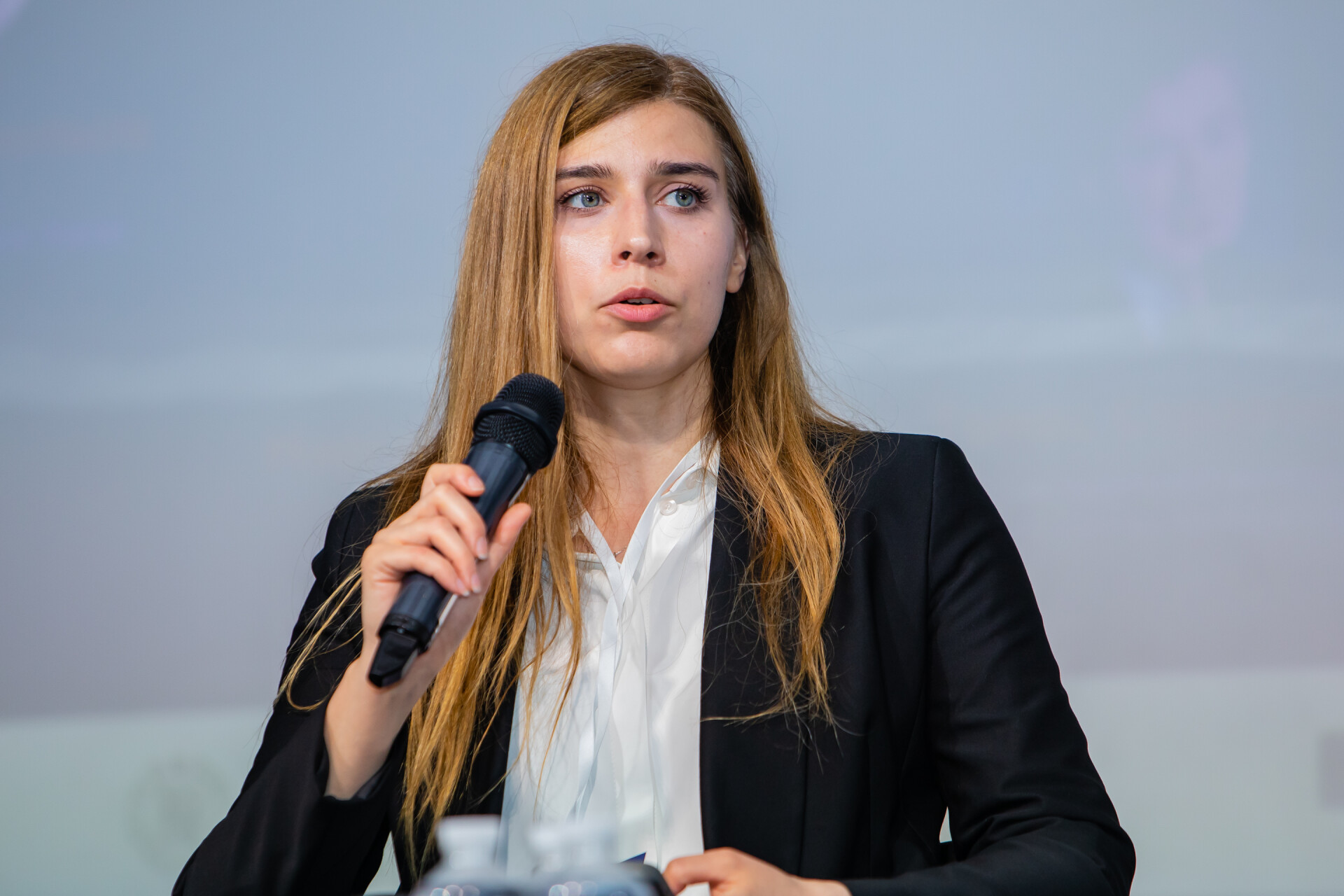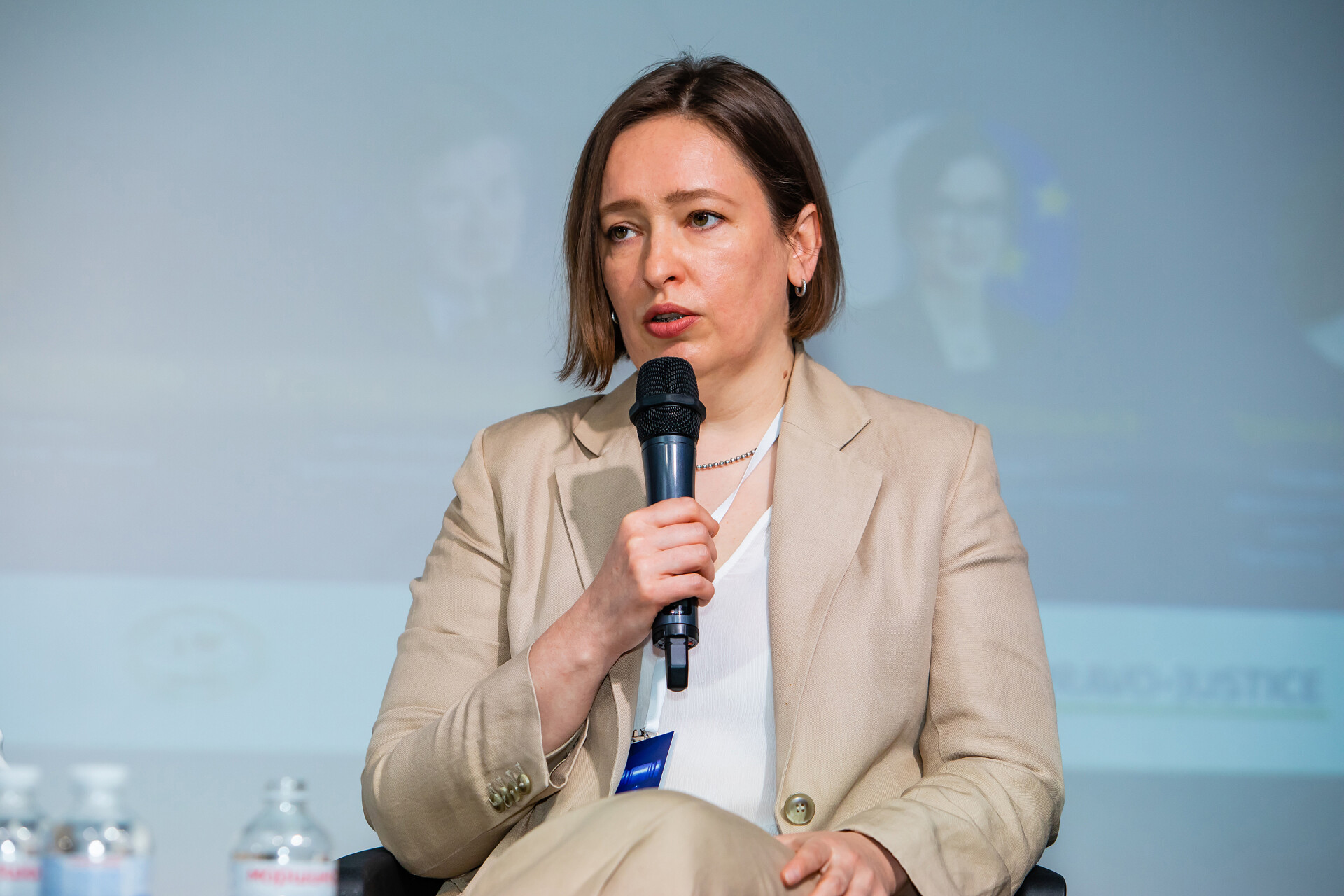EU Project Pravo-Justice Supported the Event on Judicial Oversight of Enforcement for Judges and Enforcement Officers

On June 6, the II Annual Conference “Judicial Oversight. Procedural Interaction of Judges and Enforcement Officers for the Enforcement of Decisions” took place in Kyiv. The event was organised by the Council of Private Enforcement Officers of Kyiv with the support of EU Project Pravo-Justice, the Association of Private Enforcement Officers of Ukraine, and the National School of Judges of Ukraine.
The event was attended by justices of the Supreme Court, the Commissioner for the European Court of Human Rights, a representative of the EU Delegation, the National School of Judges of Ukraine, MPs of the Verkhovna Rada of Ukraine, lawyers, and academia. More than 70 judges of various instances, PEOs and lawyers participated in the Conference.
The agenda of the event included the implementation of Law 4094-IX on improving the provisions on judicial control over the enforcement of court decisions; the practice of the Supreme Court; legal aid costs; and appeals of electronic auctions. The aim of the event was to promote the strengthening of the dialogue between judges and enforcement officers, which is an important prerequisite for the implementation of real justice.
Olha Stupak, judge of the Grand Chamber of the Supreme Court, emphasised that in conditions of a full-scale war, the enforcement of court decisions takes on special importance.
“The armed aggression of the Russian Federation complicates access to debtors’ property, destroys assets, leads to the displacement of people – this creates yet new barriers to enforcement. However, it is the enforcement of decisions that becomes of key significance to maintain trust in the State,” said Olha Stupak.
Pavlo Pavlish, Deputy Chairman of the Verkhovna Rada Committee on Legal Policy, noted that Law No. 4094-IX, adopted in November 2024, expands the possibilities of judicial oversight. According to him, this will contribute to increasing the statistics of enforcement of court decisions.
“We sought to provide the parties to enforcement proceedings with additional tools. This is not just about technical changes — this is about increasing trust in the entire justice system. The Committee is ready to carefully consider all the proposals voiced at the conference. If they really help, we will promptly respond at the legislative level,” emphasised Pavlo Pavlish.

Marharyta Sokorenko, Commissioner for the European Court of Human Rights, recalled that the problem of non-enforcement of court decisions remained systemic and needed to be resolved.
“After the judgment in Burmych v. Ukraine case, this issue is under constant monitoring by the Committee of Ministers of the Council of Europe. The adopted law is a response to the international obligation enshrined in the updated Action Plan for the Implementation of the National Strategy for Addressing the Problem of Non-Execution of Court Decisions. However, our European partners are waiting not only for the laws to be adopted, but also for them to be properly implemented,” she said.
Tomas Stravinskas, Sectoral Manager at the EU Delegation to Ukraine, pointed out the European integration dimension of enforcement reform.
“The reform of enforcement proceedings is part of Ukraine’s international obligations. It is enshrined in the Rule of Law Roadmap and in the Ukraine Facility Plan. Its priorities are, among others, strengthening the role of PEOs and introducing effective judicial control,” said Tomas Stravinskas.

Iryna Zharonkina, Enforcement and Protection of Property Rights Component Lead at the EU Project Pravo-Justice, spoke about the potential capacity of judicial control as a tool for greater efficiency of the enforcement system.
“Analysing the experience of other countries, we have become convinced that judicial control is a powerful tool, especially in the implementation of binding decisions. For Ukraine, this category of decisions is one of the most problematic, because under the existing system, enforcement officers have a limited toolkit to influence the debtor. Therefore, expanding judicial control may influence significantly the execution of this category of decisions,” noted Iryna Zharonkina.
She also added that EU Project Pravo-Justice together with Pro Justice had begun analytical research that would allow to empirically investigate into how judicial control functioned in the administrative jurisdiction and to assess its effectiveness.
Mykola Onishchuk, rector of the National School of Judges of Ukraine, reported that in cooperation with the APEOU, a new course of lectures on judicial oversight of the execution of court decisions was developed and introduced to the preparatory curriculum for judges.
“This is not just another separate module, but a part of judicial training. We strive to establish a common understanding of how the execution of decisions works as early as at the stage of preparing candidates for the judicial profession,” said Mykola Onishchuk.
“Holding this conference is a response to a pressing need. It is only through coordinated interaction between judges and enforcement officers that the real effectiveness of justice can be ensured. Our goal is not just to outline the problems, but to jointly develop solutions that will change the situation for the better. This is critically important for trust in the State and the legal system in general” emphasised Mykhailo Koroliov, Chair of the Council of Private Enforcement Officers of Kyiv.
In turn, Oksana Rusetska, Head of the Association of Private Enforcement Officers of Ukraine, noted that such a wide range of conference participants gave a good reason to expect for reaching common ground as to the challenges arising before the enforcement system.